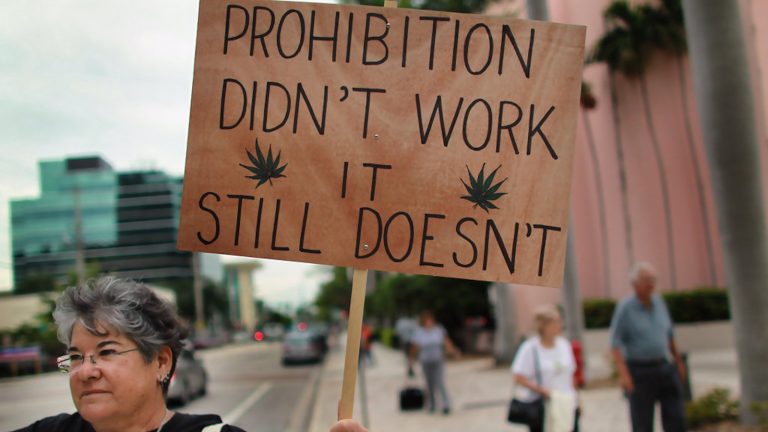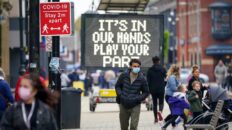Since President Richard Nixon declared the War on Drugs in 1971, we’ve witnessed one of the biggest policy failures in American history. It was meant to stymie drug abuse, but it really just cost billions of dollars and ruined lives.
That’s why, last month, Democratic presidential hopeful Pete Buttigieg boldly came out in favor of decriminalizing all drug use, saying “incarceration should not even be a response to drug possession.” It seems radical on its face, but it’s about time someone suggested it. After all, it’s a proposal that would lower America’s insane incarceration rate and save taxpayer money—all while saving lives.
In 2015, the government spent more than $3.3 billion to lock up people on drug-related charges. What has that spending achieved? A massive increase in incarceration. Overdose deaths jumping from 2.7 per 100,000 people in 1980 to 12 per 100,000 people in 2008. A sharp increase in the spread of drug-related diseases, such as Hepatitis C. Continued black market, cartel and gang-related violence.
Prohibition has always been a flawed policy position that ultimately leads to more consumption of what has been outlawed.
Too, it makes that consumption more dangerous by pushing it to the unregulated black markets. For example, alcohol prohibition ultimately led to an average of 1,000 Americans dying annually from drinking tainted liquor that, in a regulated market, wouldn’t have killed them. Harvard University scholar Jeffrey Miron has even found a direct causal relationship between the increased homicide rate and prohibition.
Drug prohibition has also driven production into clandestine black-market operations, leading to drugs laced with killer chemicals or potency levels that lead to more overdoses.
Decriminalizing these substances would cut those tragic numbers considerably. Moreover, requiring labeling that explains the dosage, similar to proofing for alcohol, would ensure individuals understand what they’re putting in their bodies.
And decriminalization would lend a hand in removing the stigma of therapy for addiction and abuse. Fear of being labeled a “criminal” or “junky” prevents many individuals from talking with their loved ones or professionals about this disorder and perpetuates dangerous habits. Indeed, the 2014 National Survey on Drug Use and Health found that 21.5 million Americans struggled with some sort of substance use disorder, but a mere 2.5 million received treatment. In a 2007 study of patients at a methadone clinic, Dr. Kyaien Conner, then of the University of Pittsburgh and now at the University of South Florida, discovered that “respondents who reported more stigmas were more likely to identify stigma as a barrier to substance abuse and mental health treatment.”
The Drug War doesn’t just take lives through overdose deaths. It has contributed substantially to our country’s growing mass incarceration problem, too. One-in-five people behind bars are there for a non-violent drug offense. According to the Vera Institute, it costs an average of $31,000 per year to keep someone incarcerated, meaning that with 451,000 people incarcerated for non-violent drug offenses, the U.S. is spending $13,981,000,000 annually to keep them locked up.
Countries that have chosen to look at drug use as a public health problem rather than a criminal justice issue have seen significant declines in drug-related deaths and the spread of diseases. Portugal, for instance, decriminalized all drug use in 2001, and opiate, amphetamine, methadone and cocaine deaths have all decreased sharply since, as have overall drug deaths. Additionally, the number of drug users living with HIV decreased from 50 percent in 2000 to around 30 percent in 2008. Prior to decriminalization, yearly drug deaths were on a steady increase, and Portugal had the highest HIV rate among drug users out of any country in the European Union. Lastly, with an incarceration rate of 130.6 per 100,000, Portugal locks up nearly 7 times fewer people than the United States.
Mayor Pete is right. It’s high time we take a deep look in the mirror and realize that the War on Drugs is tearing apart communities and contributing to an unjust mass incarceration system—all while doing absolutely nothing to stop drug deaths and violence.














Add comment